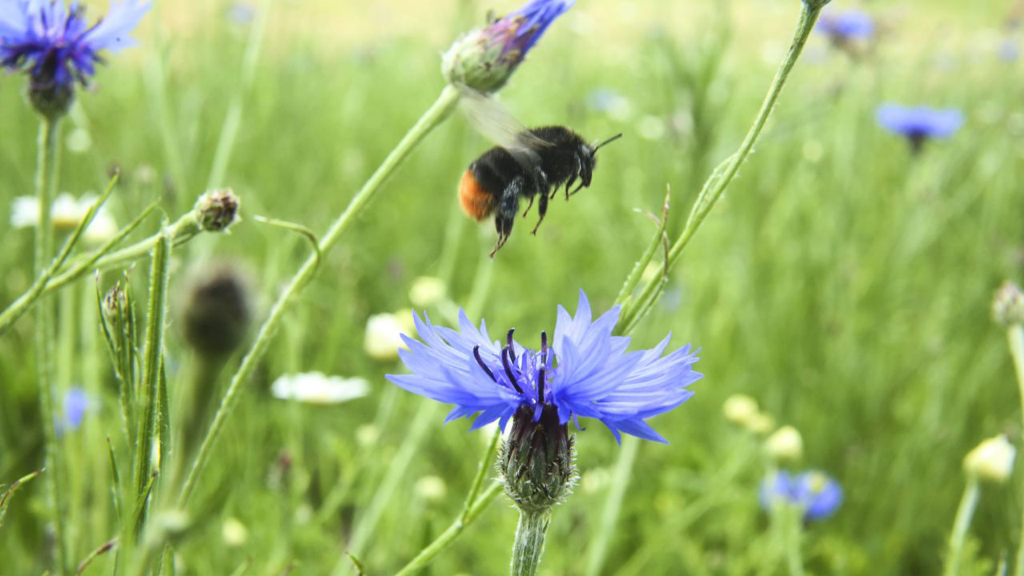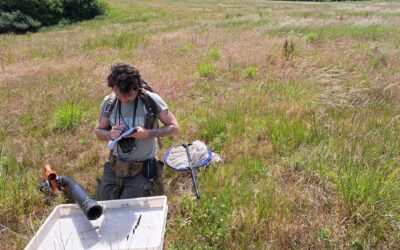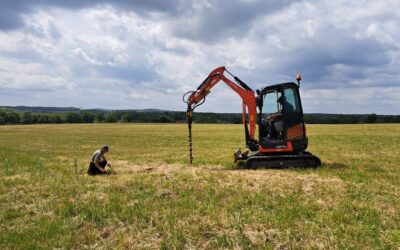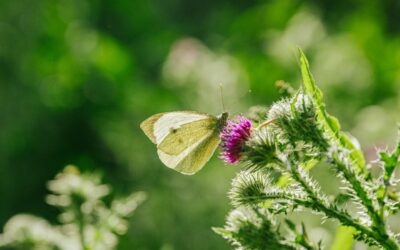Insect pollinators of all types are in decline in the UK. Remember how, years ago, when driving through the countryside, insects and flies would splat onto the car windscreen? This rarely happens now – it’s an unmistakable sign that something drastic has happened to our insect population, and a wake-up call that something needs to be done about it.
Bees are key pollinators. So, earlier this month, we welcomed bee expert Paula Carnell to Ewhurst Park to carry out our first ‘bee audit’.
It was a cold morning when Paula arrived, and it was a little early in the year for many bee species, so perhaps not surprisingly there were only a few bee sightings. We spotted a small number of dark honeybees, also known as black bees, which are native to the UK. Encouragingly, this suggested wild bees are living nearby, perhaps somewhere on the estate or close to it. Also promising, later in the day, we found holes created in the ground by mining bees, which nest in the tunnels they build underground.

Bees will be returning to Ewhurst Park.
So there is evidence for bee activity on the estate. Now we want to implement plans to attract a variety of bee species. Fortunately, there is a lot of potential given the range of habitats on the estate, with different habitats ideal for attracting different species.
We will be installing hives, including constructed bait hives, which we prepare with comb inside, and hives made with natural materials, such as hollowed-out logs. We can also expect to see bees being drawn naturally to nest in our trees, underground, in abandoned rodent holes, and in thick grass. And we are considering establishing an apiary, which will further increase the bee population and be a source of wild honey.
At the same time, bees will be attracted to the flowers and plant life that will flourish across Ewhurst Park as part of our regeneration project. We will see wild flowers spreading across our chalklands, water meadows and grasslands. In our woodlands we are planting willow, a favourite of buff-tailed bumblebees and honeybees. And in our market gardens we recently planted 100 metres of hedgerow, which will attract honeybees, bumble bees and bees of the Andrena and Mechachile species.
Our bee audit is providing vital information to help us with our plans. It was wonderful to have the benefit of Paula’s expertise. Her visit left us feeling encouraged and inspired.
The decline of any part of our natural world is a worry, but the decline of the bee population is a particular concern because of its link in the food chain. Put simply, the loss of any pollinators affects our ability to grow food crops. Clearly, we need to boost the bee and insect population, in the UK and globally, and here at Ewhurst Park we are playing our part.
- For a longer version of this article exploring the importance of pollinators, see my article at Sublime magazine.



